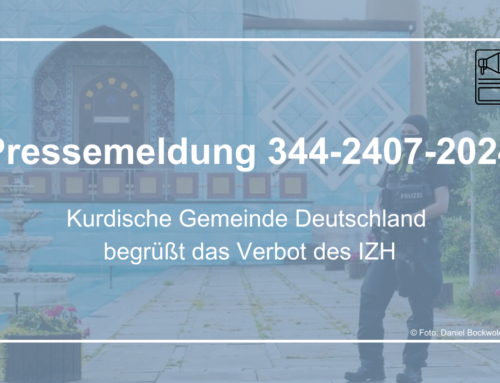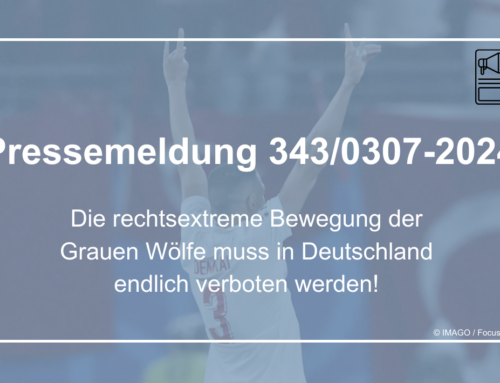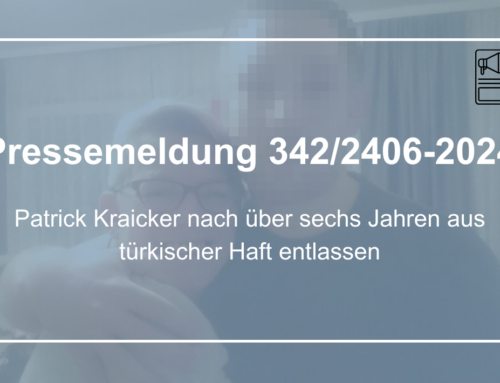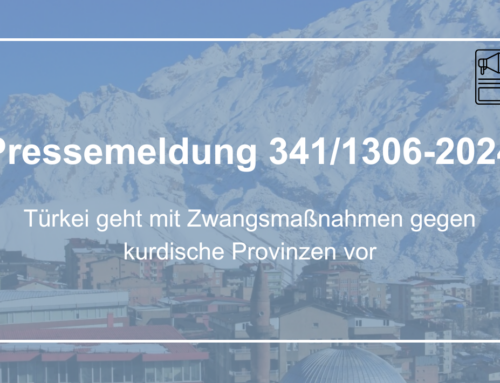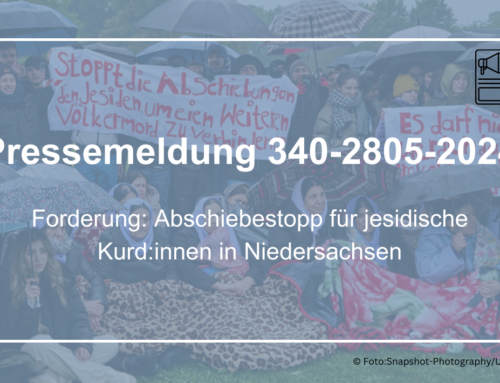PRESSEMITTEILUNG: 44/2906-2015
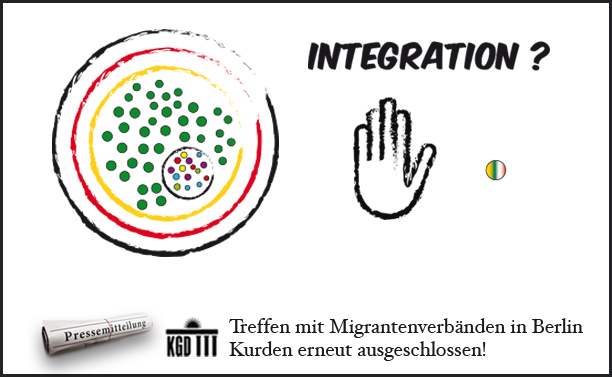
Im Rahmen des intergrationspolitischen Dialogs hat die Beauftragte für Migration, Flüchtlinge und Integration, Staatsministerin Aydan Özoguz, für den morgigen Dienstag die Migrantenverbände zu einem Treffen im Bundeskanzleramt eingeladen. Das Thema des Gesprächs wird die Aufnahme und Unterbringung von Flüchtlingen sein. Bundesklanzlerin Angela Merkel wird zu dem Treffen dazu kommen. Vertreter der kurdischen Community in Deutschland wurden erneut nicht eingeladen. Die Kurdische Gemeinde Deutschland wird bis heute beharrlich von der Beauftragten der Bundesregierung von solchen regelmäßigen Treffen ausgeschlossen, obwohl die kurdische Migrantengruppe mit über einer Million Menschen zu einer der größten Migrantengruppen in Deutschland zählt. Die Kurdische Gemeinde Deutschland ist seit ihrer Gründung als eine deutsche NGO bemüht, die Integration der Deutsch-Kurden in die deutsche Gesellschaft zu unterstützen.
In den letzten Jahrzehnten haben Tausende von Menschen aus Kurdistan in Deutschland vor Verfolgung Schutz gesucht und hier eine neue Heimat gefunden. Heute fliehen ebenfalls, hauptsächlich aus Syrien sowie aus dem Irak und Iran, unsere Landsleute vor Krieg und Unterdrückung. Deutschland leistet im Rahmen der humanitären Hilfe Unterstützung für kurdische Flüchtlinge in Kurdistan. Dafür sind wir diesem Land dankbar.
Es ist eine große Herausforderung für Europa und vor allem für Deutschland die steigende Anzahl an Flüchtlingen aufzunehmen und angemessen unterzubringen. Die bisherigen flüchtlingspolitischen Vorhaben in der EU und in Deutschland sind jedoch alles andere als ausreichend. Die EU Staaten sind mit ihrer Quotenregelung für Flüchlinge gescheitert. Sie investieren in die Aufrüstung der Seeflotten, um die Grenzen nach Europa dicht zu machen, anstatt den Flüchtlingen eine nachhaltige Perspektive zu bieten. Vor dem Hintergrund, dass sich weltweit mehr als 60 Millionen Menschen auf der Flucht befinden, darf sich die EU nicht ihrer Verantwortung entziehen.
Wir sind ebenfalls besorgt über die steigende Anzahl von Anschlägen auf Unterkünfte von Asylsuchenden und fremdenfeindliche Angriffe auf Flüchtlinge in Deutschland. Es muß alles getan werden, um die Flüchtlinge zu schützen und solche Anschläge zu verhindern.
Bei der Unterbringung von Flüchtlingen dürfen Bund und Länder die Kommunen nicht allein lassen. Die Kurdische Gemeinde Deutschland möchte zu diesem Thema konstruktive Vorschläge unterbreiten und Verantwortung übernehmen. Sie hat sich in der Vergangenheit in vielen Projekten und Initiativen immer für das friedliche Zusammenleben in Deutschland eingesetzt.
Wir fordern die Bundesregierung auf die Kurdische Gemeinde Deutschland nicht länger vom integrationspolitischen Dialog auszuschließen.
Verwandte Links:
| World |
German minister meets with minority communities: Kurds excluded
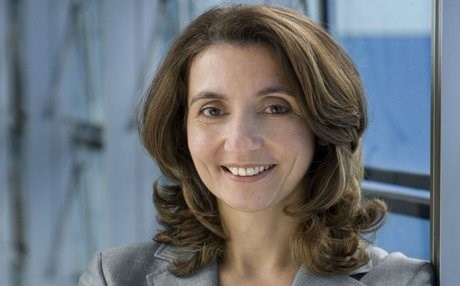
Aydan Ozoguz is the first German minister of Turkish descent: Photo: ezoguz.de
MAINZ, Germany – On Tuesday, when Germany’s integration minister invited representatives from around 30 immigrant organizations to a meeting, the Kurds complain they were conspicuous by their absence.
The invitation, by the Turkish-German Minister of Migration Aydan Ozoguz to the federal chancellery in Berlin, was part of a dialogue on the German policy of integration.
The Kurds – the second-largest minority in Germany and now claiming to be a million-strong – resent that there was no official representative of the Kurdish community. They say this is not the first time Kurds are excluded.
“Again, there were no invitations for representatives of the Kurdish community,“ said the Kurdish Community in Germany (KGD), one of the most well-known Kurdish organizations in Germany. “We call on the federal government to not exclude the Kurdish Community in Germany any longer,” it said in a press release.
The state minister’s press office explained to Rudaw that guests with Kurdish backgrounds had been invited to the event, including Ali Ertan Toprak, from the Federal Association of Immigrant Organizations (BAGIV), and a representative of the German organization Navend, who could not attend.
“It is in the nature of such events that we can invite just a sample of all the organizations in Germany. But we try our best to ensure that representatives of all groups are in attendance,” the minister’s office said.
But Mehmet Tanriverdi, co-chairman of KGD, explained this was the point: there was no one representing any Kurdish organization.
“It needs to be mentioned that Mr. Toprak attended for BAGIV, which is the umbrella organization of all of Germany’s immigrant associations. Navend defines itself as a German association, not a Kurdish one,“ he told Rudaw.
“The minister does not speak the truth. There were about 10 representatives of the so-called Turkish immigrant organizations, not a single representative of the Kurds was there. Toprak was never invited as representative of KGD, for which he is a chairman.”
Anya Delen, co-chair of the KGD’s youth organization (KJD), said. “A country that is based on democratic principles should guarantee the participation of all groups of its society.
“The minister of state failed to do that and made it clear to the Kurdish community that the dialogue with the Kurds is unwanted. The KJD believes that this was a step in the wrong direction which does not promote the intercultural dialogue.”
Kahraman Evsen, who works at the European Commission and is the chairman of the newly founded German-Kurdish Lawyers Association (DKJV), said there are a million Kurds living in Germany, and they cannot be ignored.
“It is unacceptable that not a single representative of the second-largest immigrant group was invited to the integration summit. How can one talk about integration, but ignore one million Kurds in this country?“ he asked.
With an estimated population between 800.000 and one million, the Kurdish diaspora is one of the largest immigrant groups in Germany.
Many organizations like the KGD, KOMCIWAN and others try to give that community a voice by organizing recurring events and participating in the political landscape of Germany.


